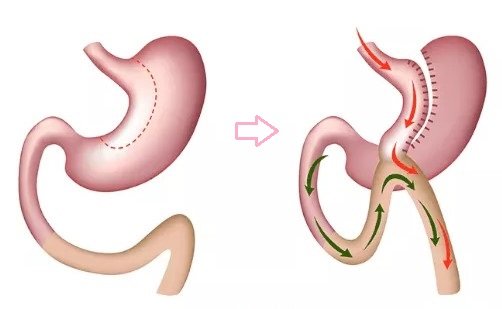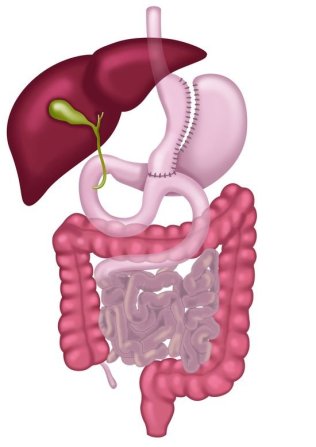Mini Gastric Bypass in Turkey

What is Mini Gastric Bypass Surgery?
Mini Gastric Bypass (MGB) surgery is a minimally invasive weight loss procedure designed to help individuals achieve significant and sustainable weight loss by altering the anatomy of the digestive system. It is a highly effective option for those struggling with obesity and related health conditions.
How Does Mini Gastric Bypass Work?
During Mini Gastric Bypass surgery, the surgeon makes small incisions in the abdomen and creates a small stomach pouch near the top of the stomach. This pouch restricts the amount of food that can be consumed, leading to a feeling of fullness with smaller portions. Next, the surgeon reroutes a portion of the small intestine and attaches it to the newly created stomach pouch. By bypassing a segment of the small intestine, the procedure reduces the absorption of calories and nutrients from food.
Benefits of Mini Gastric Bypass Surgery:
Significant Weight Loss: Mini Gastric Bypass surgery has been shown to result in substantial weight loss, often exceeding 60-70% of excess body weight within the first year after the procedure.
Improvement in Health Conditions: Many individuals experience improvements or resolution of obesity-related health conditions such as type 2 diabetes, high blood pressure, sleep apnea, and joint pain following Mini Gastric Bypass surgery.

Long-Term Results: Studies have demonstrated that Mini Gastric Bypass surgery can lead to sustained weight loss and improvements in overall health and quality of life over the long term.
Minimally Invasive: Mini Gastric Bypass surgery is typically performed using laparoscopic techniques, which involve smaller incisions, reduced postoperative pain, shorter hospital stays, and faster recovery compared to traditional open surgery.
Is Mini Gastric Bypass Right for You?
Mini Gastric Bypass surgery may be suitable for individuals who: Have a body mass index (BMI) of 40 or higher, or a BMI of 35-39.9 with obesity-related health conditions.
Have a body mass index (BMI) of 40 or higher, or a BMI of 35-39.9 with obesity-related health conditions.
Have tried and failed to lose weight through diet and exercise alone.
Are committed to making long-term lifestyle changes to support their weight loss journey.
Have been evaluated by a qualified healthcare provider and determined to be appropriate candidates for the procedure.
Risks and Considerations:
While Mini Gastric Bypass surgery is generally safe and effective, it carries risks like any surgical procedure. Potential risks and complications may include:
Infection
Bleeding
Nutritional deficiencies
Dumping syndrome (rapid emptying of stomach contents into the small intestine)
Gallstones
Ulcers
Bowel obstruction
It's important for individuals considering Mini Gastric Bypass surgery to thoroughly discuss the potential risks and benefits with their healthcare provider and to undergo comprehensive preoperative evaluation and counseling.
Conclusion:
Mini Gastric Bypass surgery is a proven and effective option for achieving significant and sustainable weight loss, improving obesity-related health conditions, and enhancing overall quality of life for eligible candidates. By undergoing this procedure and committing to long-term lifestyle changes, individuals can take an important step toward achieving their weight loss goals and enjoying a healthier, happier life.
Recovery and Follow-Up Care:
Following Mini Gastric Bypass surgery, patients will typically stay in the hospital for a few days for monitoring and recovery. During this time, they will receive instructions on diet, activity level, and wound care. Most patients can return to normal activities within a few weeks, although strenuous exercise may need to be avoided for a longer period.
Long-term follow-up with a healthcare provider is essential after Mini Gastric Bypass surgery to monitor weight loss progress, assess nutritional status, and address any potential complications. Patients will be advised to adhere to a specific dietary plan, including consuming small, nutrient-dense meals, taking vitamin and mineral supplements as prescribed, and avoiding certain foods that may cause discomfort or complications.
Dietary Guidelines:
Following Mini Gastric Bypass surgery, patients will need to transition through several phases of a structured diet plan to allow their stomach and digestive system to heal and adjust gradually. This typically involves starting with clear liquids and progressing to pureed foods, soft foods, and eventually solid foods over several weeks. Patients will be encouraged to focus on protein-rich foods, fruits, vegetables, and whole grains while minimizing intake of sugary and high-fast foods.
Lifestyle Changes:
Mini Gastric Bypass surgery is not a quick fix but rather a tool to support long-term weight loss success. Patients will need to commit to making significant lifestyle changes, including adopting healthier eating habits, increasing physical activity, managing stress, and seeking ongoing support from healthcare professionals, support groups, or counseling services as needed. Developing a positive relationship with food and implementing sustainable behavior changes are crucial for maintaining weight loss and optimizing health outcomes over time.
Cost and Insurance Coverage:
The cost of Mini Gastric Bypass surgery can vary depending on factors such as the surgeon's experience, hospital fees, and geographic location. Insurance coverage for weight loss surgery may vary depending on the individual's insurance plan and specific medical criteria. Patients should check with their insurance provider to determine coverage eligibility and any out-of-pocket expenses associated with the procedure.
Choosing a Qualified Provider:
When considering Mini Gastric Bypass surgery, it's essential to choose a qualified and experienced healthcare provider who specializes in bariatric surgery. Patients should research potential surgeons, review their credentials, certifications, and patient reviews, and schedule consultations to discuss their goals, concerns, and treatment options in detail. A supportive and knowledgeable healthcare team can guide patients through every step of the surgical process and provide ongoing care and support for long-term success.
You Can Success With Best Surgeons in Istanbul, Turkey
CALL-US NOW
+90 544 165 05 04
Obesity Surgery Clinic Call Center
Tel & Whatsapp
24 hours a day, 7 days a week



